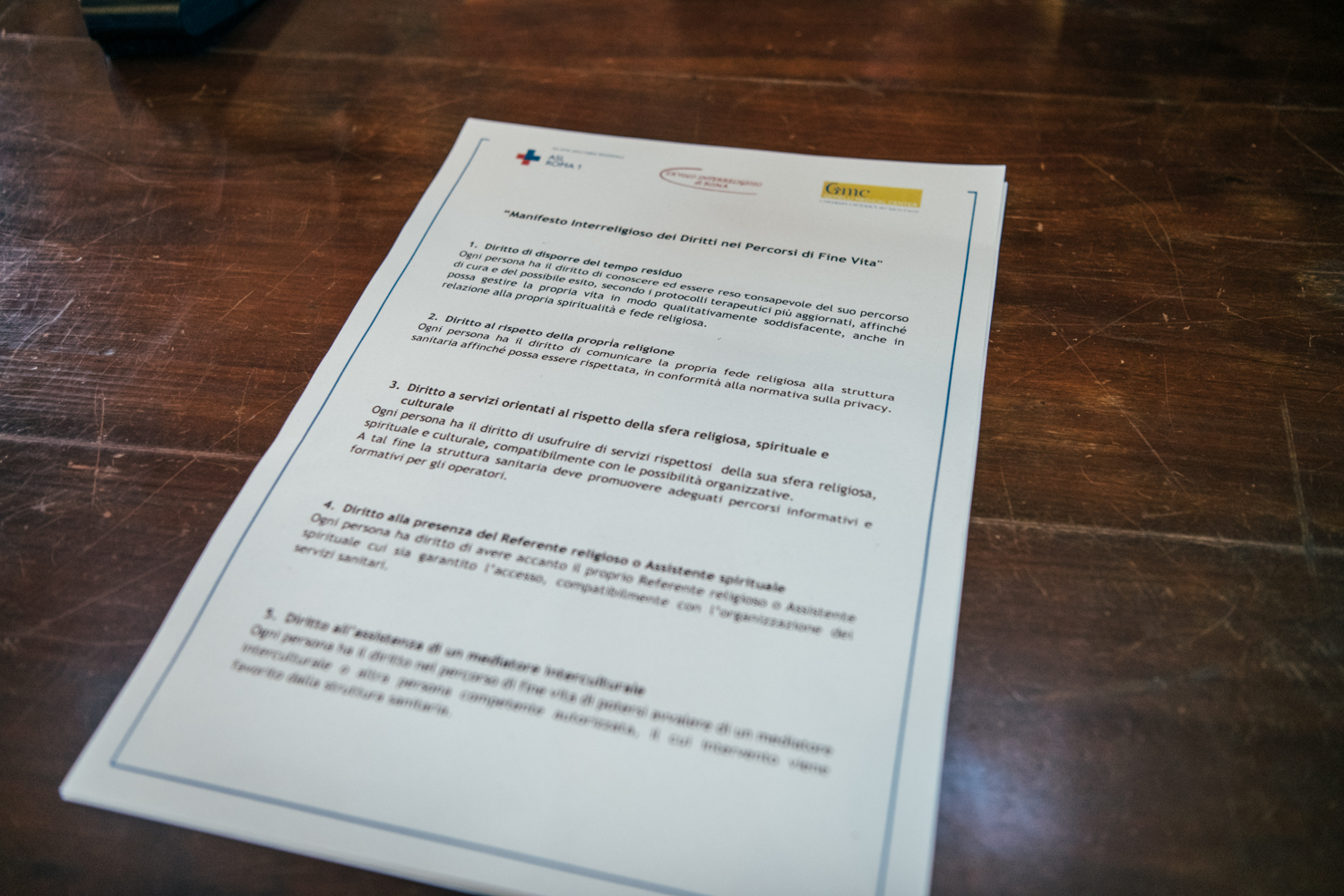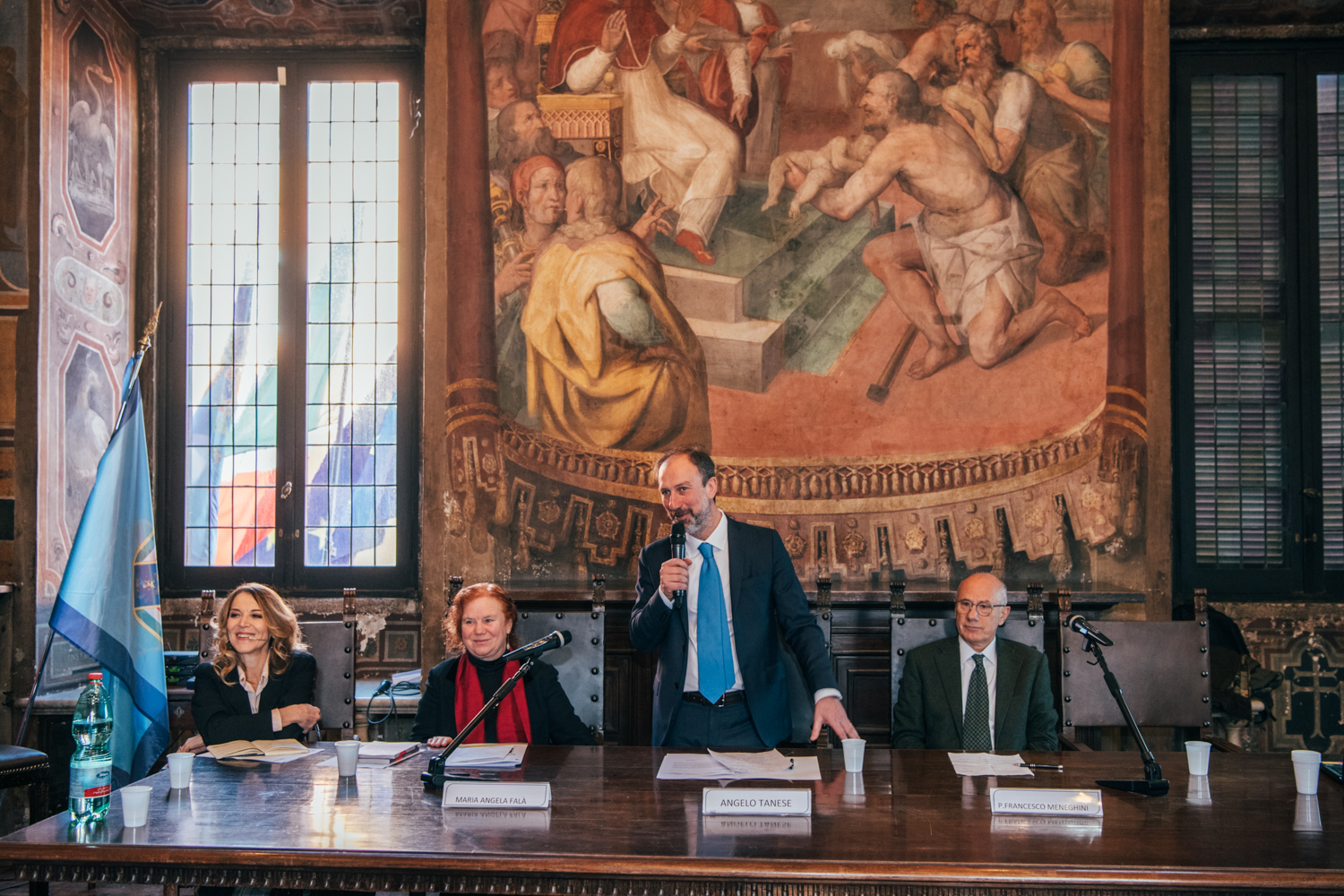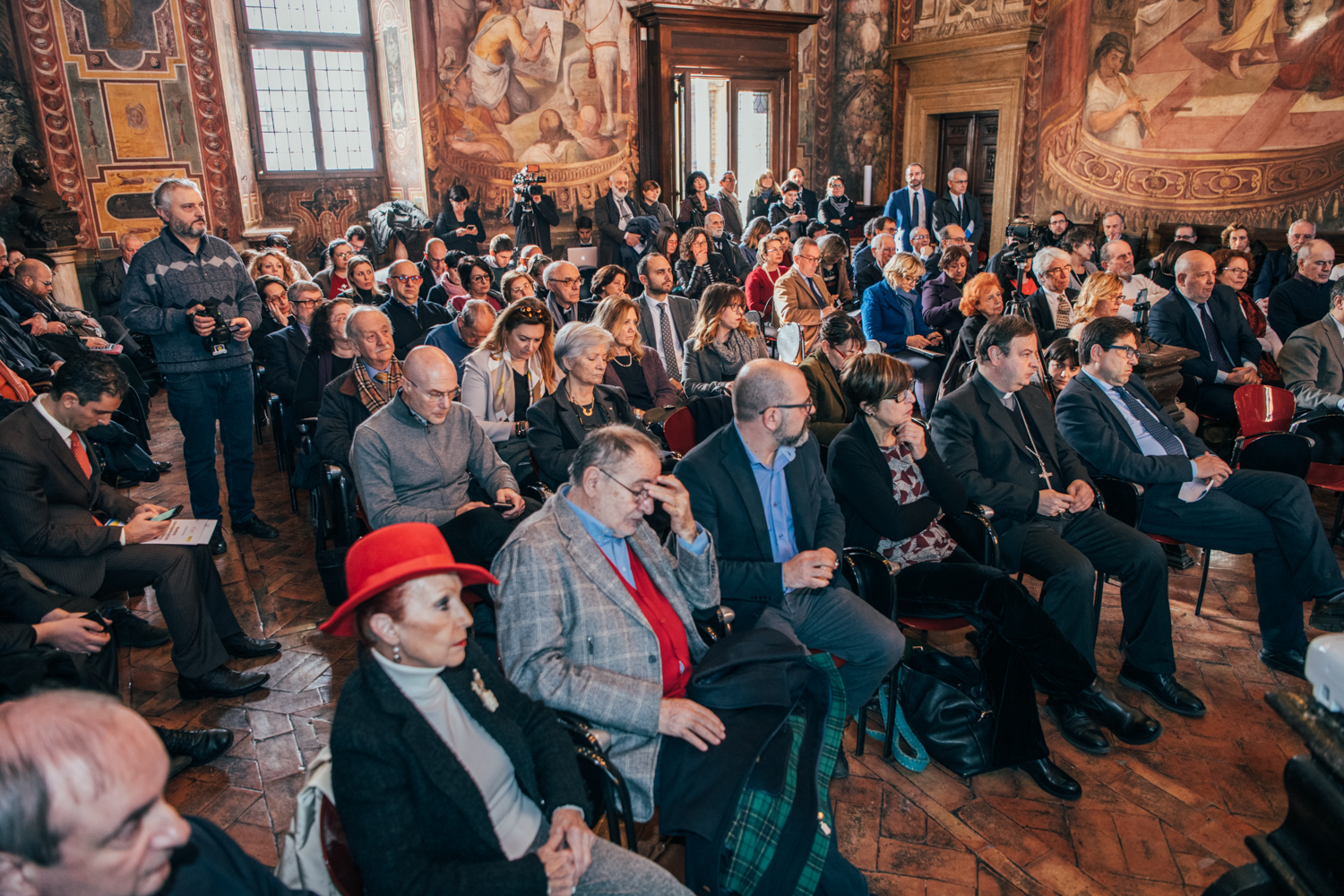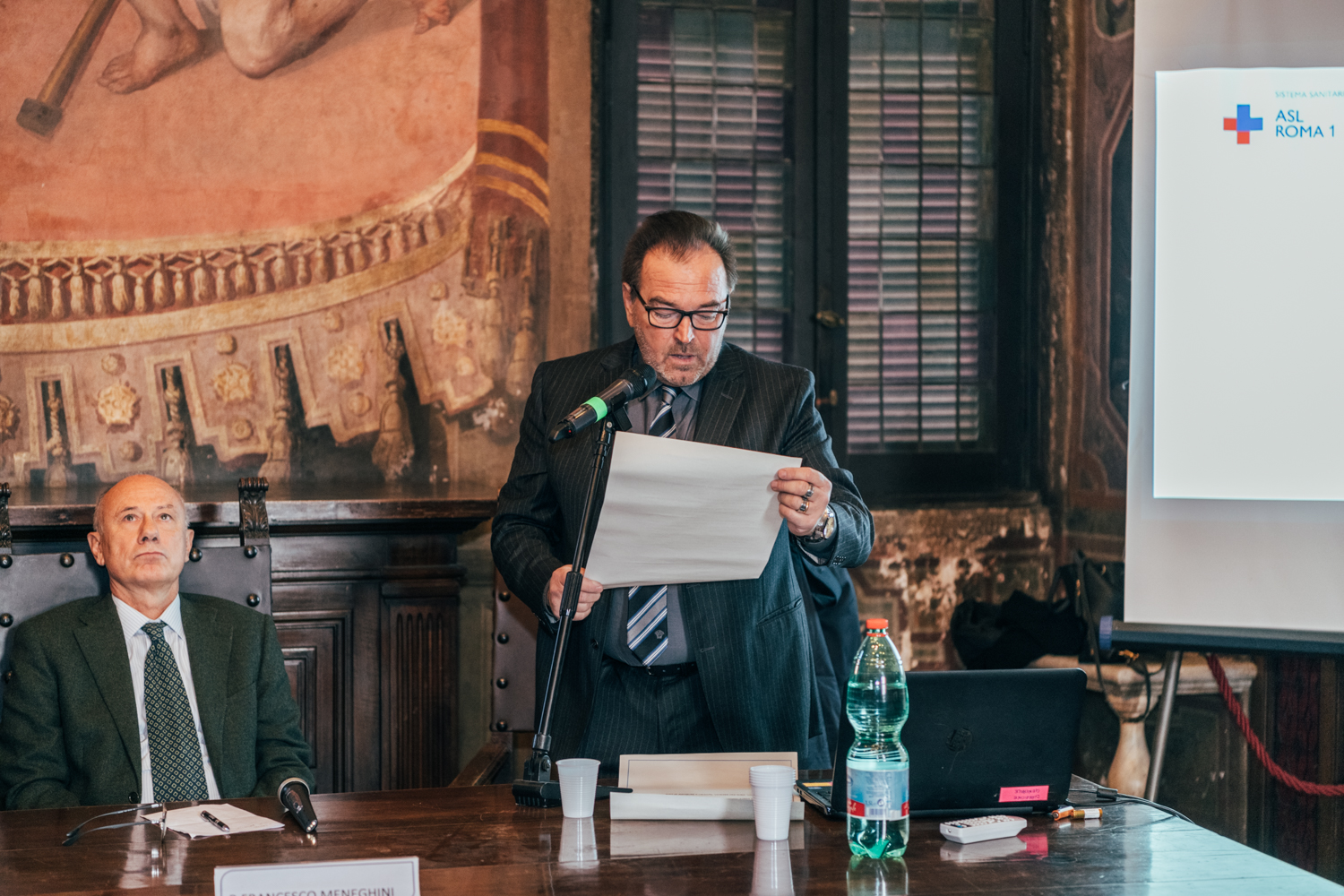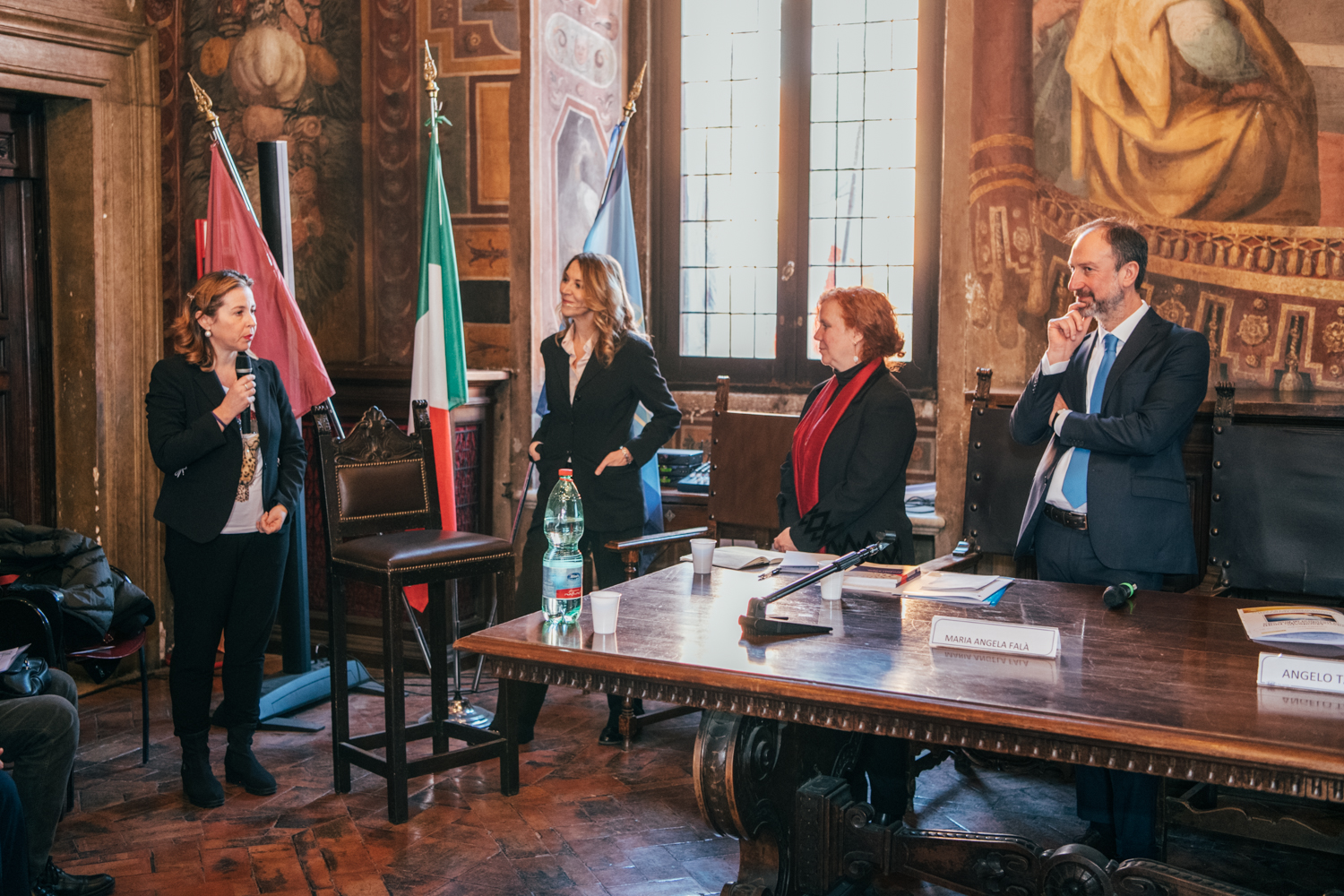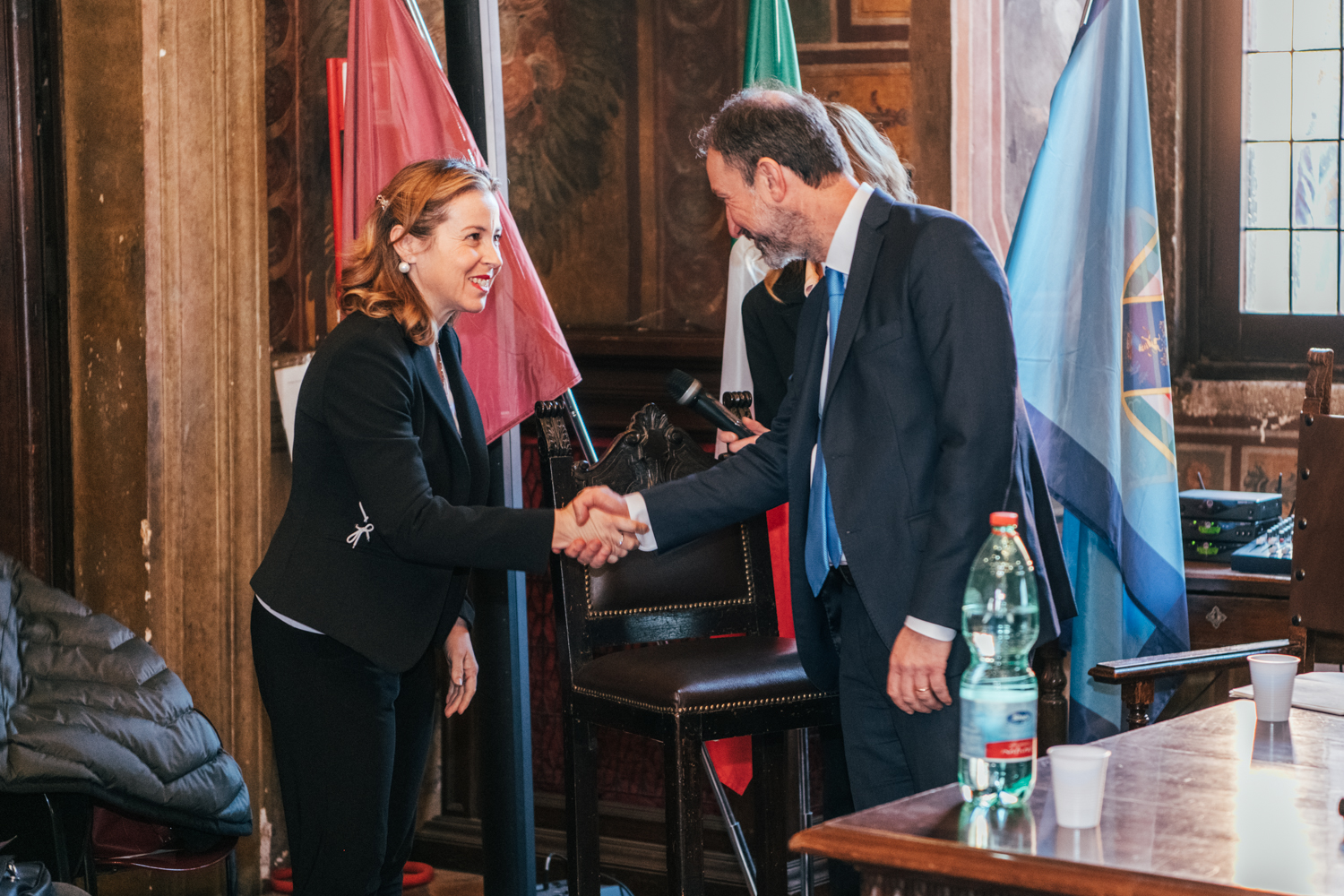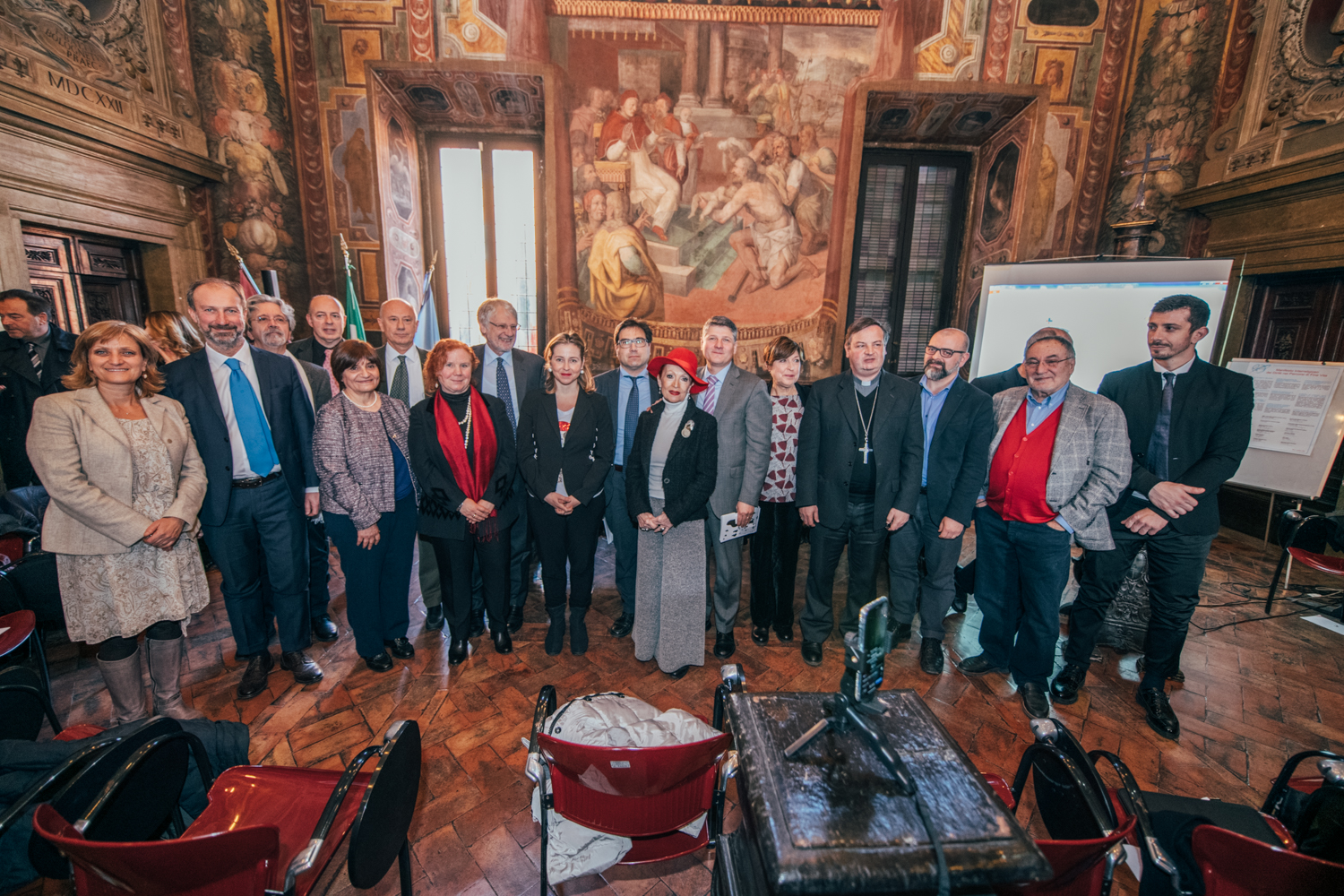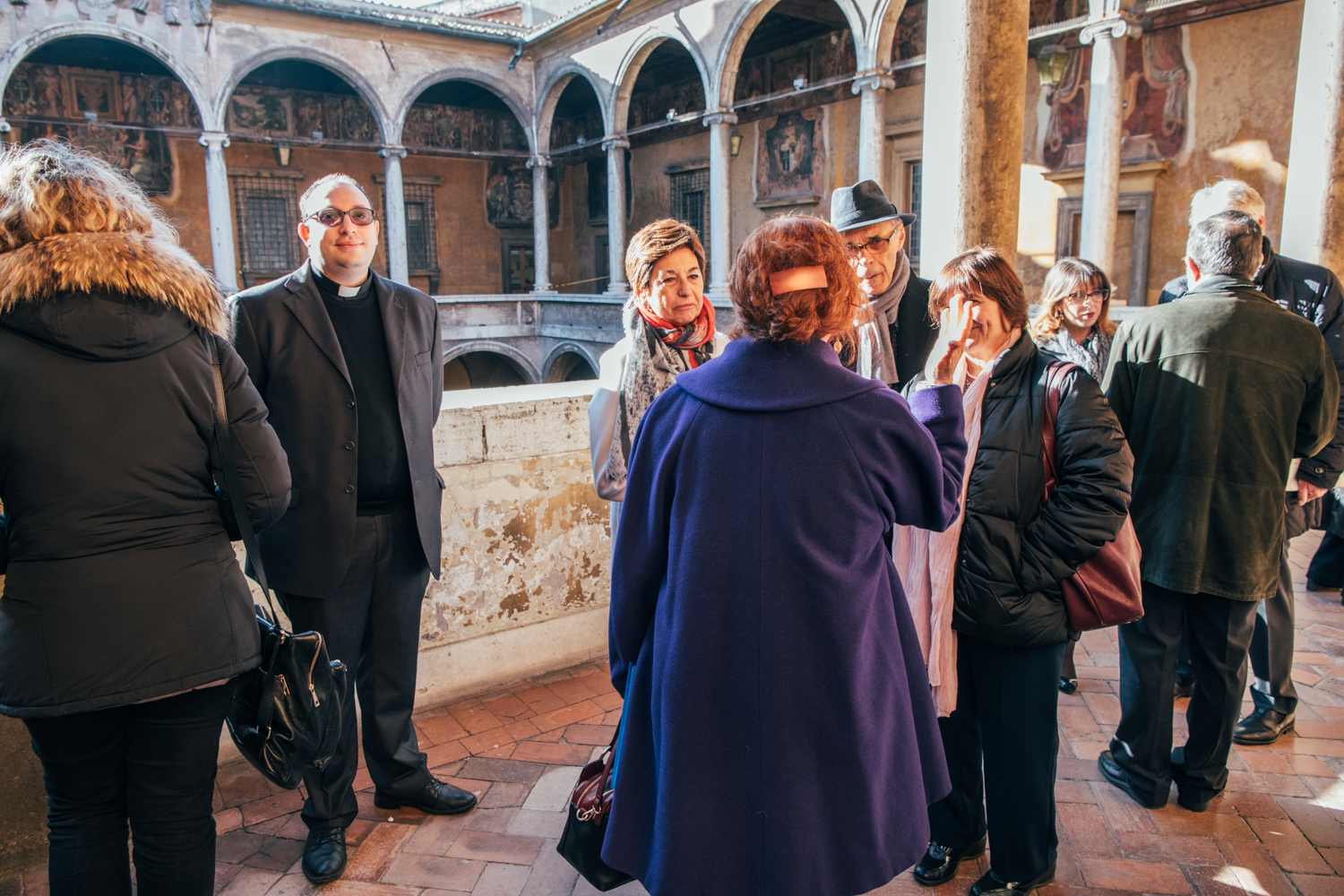SIGNATURE INTERRELIGIOUS MANIFESTO OF THE RIGHTS IN END OF LIFE PATH
Tuesday 5 February h.10.00 a.m. Rome Commendatore Hall Monumental Complex of the Holy Spirit Hospital- Rome
After many preparatory meeting since June 2018, Religious Leaders from different faiths (Buddhist, Catholic, Islamic, Hinduist, Jewish, Orthodox, Christian Reformed) signed together a Manifesto to ensure religious and spiritual support to sick people in health structures like Hospital, Hospice or at home during their final phase of life.
This document is the result of a particular sensitivity towards interreligious dialogue in the healthcare sector and an important point of arrival of a fully-shared path that will enable the transformation of these agreed Rights into operating procedures accepted by the Ministry of Health in Italy .
Religious leaders and the promoting Committee considered very significant choosing a date and they unanimously considered very appropriately to subscribe this common text in the contest of World Interfaith Harmony Week promoted by the UN General Assembly with a Ceremony that involved Religious Leaders, Representatives of Official Institutions and Healthcare.
Italian Ministry of Health Giulia Grillo attended the ceremony of signature and underlined that the Manifesto is a very important issue for the Dialogue and the Cooperation between the different religions and faiths. The Italian government will fit this initiative to promote the dignity of the dying people and the religious and spiritual support at the end of life.
The President of Interreligious Committee of Rome Maria Angela Falà said that “the fact we today are here is because we are united from the death and all of us need spiritual support of our faith in this very moment”. The promoting Committee formed by ASL Roma 1, GMC Catholic University of the Sacred Heart and the Interreligious Commitee of Rome wants to be a point of reference to realize and support initiatives aimed at promoting the path as a model of support and respect for the religious creed and faith for sick and dying people in healthcare structures.
In addition to the promoting Committee the signatories of the Manifesto are: Islamic Cultural Center of Italy, Federation of Evangelical Churches in Italy, Romanian Orthodox Diocese of Italy, Hospice Villa Speranza – Catholic University of Sacred Heart, Italian Buddhist Institute Soka Gakkai, Italian Buddhist Union, Italian Jewish Community Union, Italian Hindu Union, Italian Union of 7th Day Adventist Christian Churches, Vicariate of Rome, AVO (Voluntary Association) , CSV Lazio (Volunteer Service Centre), Tribunal for the rights of the sick and a social health operator representing the professional category.
Here the Manifesto: INTERRELIGIOUS MANIFESTO OF RIGHTS IN END-OF-LIFE PATHS
1. Right to freely dispose of the remaining life span Each person has the right to know the esteem of his or her own remaining life span according to the most updated therapeutic protocols, so that they can dispose of them in a qualitatively satisfying way, even in relation to his or her own religious faith.
2. Right to respect for one’s own religion Each person has the right to communicate his or her religious faith so that it can be respected by the health structure.
3. Right to services oriented to respect for the religious and cultural sphere Each person has the right to benefit from services that are respectful of his or her own religious and cultural sphere. To this end, the health structure must carry out appropriate training courses for its staff.
4. Right to the presence of religious referent or spiritual assistant Each person has the right to have his or her own religious or spiritual assistant beside him or her. To this purpose, the health structure must provide a list of Religious Referents / Spiritual Assistants whose free access must be guaranteed.
5. Right to the assistance of a linguistic mediator Each person has the right to be able to call upon a linguistic mediator made available by the health structure.
6. Right to receive spiritual assistance even by Referents of other faiths If the spiritual Assistant of her/his own religion is not available, each person has the right to benefit from an Assistant of other faith.
7. Right to spiritual and psychological support for oneself and family members Each person and his or her family members have the right to receive spiritual and psychological support from the host health structure.
8. Right to respect for pre and post-mortem ritual customs Each person has the right to respect the pre and post mortem ritual customs provided by the faith of belonging. The health structure is required to know these customs, to adequately train its staff and create such conditions that these practices can be carried out.
9. Right to mutual respect Each person is required to respect each other’s religious beliefs, whether patients, their families or nursing staff.

